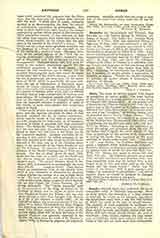

Amra, The name of certain ancient Irish elegies or panegyrics on native saints. The most famous of these which have reached us is known as the Amra of Coluimb Cille (Columbkille). It was printed with a translation by O’Beirne Crowe in 1871 from the imperfect text in the Leadhar na hUidhre; also in his edition of the “Liber Hymnorum “by Professor Atkinson, and in his “Goidelica” by Whitley Stokes, from an imperfect text in Trinity College, Dublin. These editions may, however, be considered as superseded by the Bodleian text (Rawlinson B. 502) edited, with a translation, for the first time (Rev. Celt., vols. XXXXI) by Stokes. According to the traditional account this eulogy was composed about the year 575 by Dallan Mac Forgaill, the chief ollamh of that time, in gratitude for the services of St. Columbkille in saving the bards from expulsion at the great assembly of Druim Cetta in that year. “The Amra is not”, says Stokes, “as Professor Atkinson supposed, a fragment which indicates great antiquity.” Strachan, however, on linguistic grounds, assigns it in its present form to about the year 800 (Rev. Celt., XVII, 14). Stokes, too, seems to favor this view (ibid., XX, 16). But linguistic grounds are a somewhat unstable foundation, and Strachan adds “perhaps something more may be learned from a prolonged study of this and other such as the Amra Senain and the Amra Conroi.” Dallan was the author of the former, “held in great repute”, says Colgan, “on account of its gracefulness”, and also of another Amra on Conall of Ineskeel in Donegal, with whom he was buried in one grave.
ARTHUR UA CLERIGH

